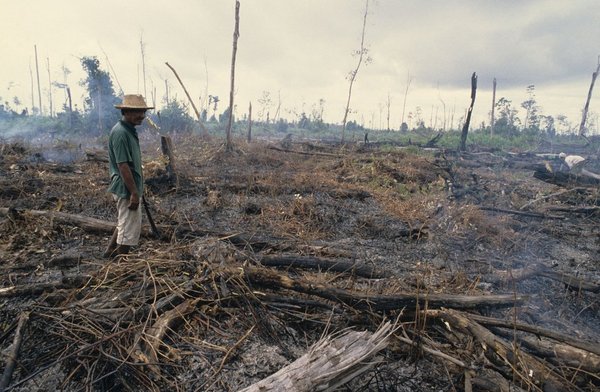 Read this article in French
Read this article in French- Share this article
- Subscribe to our newsletter
OECD-FAO guidance for responsible agricultural supply chains
The expansion of agriculture accounts for around 90 per cent of deforestation. Also with view to forthcoming EU regulation on deforestation-free supply chains, businesses are now facing the challenge to reduce deforestation in their supply chains.
This is why the Organisation for Economic Co-operation and Development (OECD) and the UN Food and Agriculture Organization (FAO) compile the “OECD-FAO Handbook on Deforestation, Forest Degradation and Due Diligence in Agricultural Supply Chains”, which is based on the “OECD-FAO Guidance for Responsible Agricultural Supply Chains.
The Initiative for Sustainable Agricultural Supply Chains (INA) of Deutsche Gesellschaft für Internationale Zusammenarbeit (GIZ) has been commissioned by the Federal Ministry for Economic Cooperation and Development (BMZ) to finance the handbook. It will provide both businesses operating in markets with regulations on deforestation-free supply chains and businesses in less regulated markets with orientation on implementing due diligence to minimise deforestation and forest degradation.
The core element of the handbook comprises the five elements of corporate due diligence – applied to the risk of deforestation and forest degradation in supply chains.Setting out from their individual risk exposure, the handbook supports businesses in assessing, preventing and mitigating deforestation risks in their agricultural supply chains and reporting on this. While the handbook focuses on deforestation and forest degradation, the handbook can also be used in minimising negative actual or potential impacts on other valuable ecosystems such as savannahs or wetlands.
A multi-stakeholder working group accompanies the development of the handbook. The perspective of global stakeholders was integrated through a public consultation in July 2022. Based on this, the handbook is to be presented in spring 2023.
Contact: Franziska Rau (Initiative for Sustainable Agricultural Supply Chains INA), Deutsche Gesellschaft für Internationale Zusammenarbeit, (GIZ) GmbH, Eschborn, Germany Franziska.rau@giz.de





Add a comment
Be the First to Comment